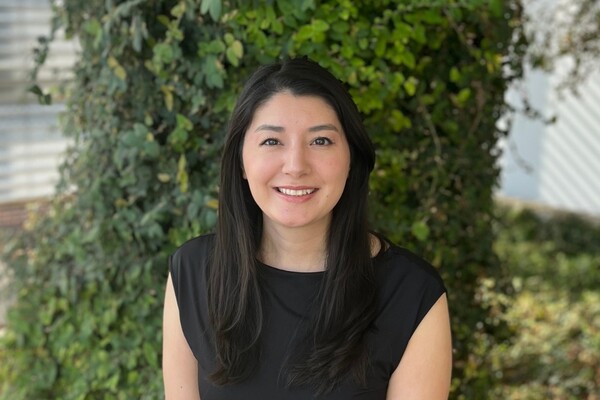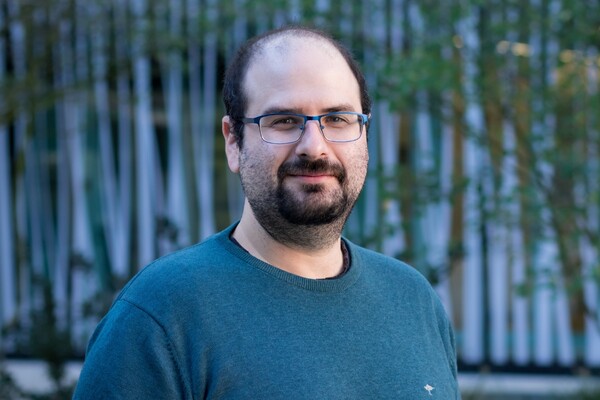Main Second Level Navigation
Computer Vision Research Wins Oren Kraus Donnelly Thesis Prize
Oren Kraus took up coding because, by his own admission, he was not cut out for doing experiments in the lab. Now an image recognition software he helped create has the potential to transform biomedical research and drug discovery.
Dubbed DeepLoc, and based on deep learning, a form of artificial intelligence, the software quickly sifts through reams of microscopy data to pick out subtle differences between cells and sort them into distinct categories. Faster and more accurate than the human eye, the algorithm is vastly accelerating research that aims to understand how thousands of genetic mutations and drugs affect cell health to, for example, spot early signs of cancer and develop more precise treatments.
Learn more about how DeepLoc is helping scientists keep track of cell's inner parts.
For his research, Kraus was awarded the Donnelly Centre Research Thesis Prize, an annual award given to an outstanding PhD student in the Donnelly Centre whose completed thesis has achieved the highest standards of quality, originality and research significance, it was announced this week.
“On behalf of the award committee, I would like to congratulate Oren on this deserving award,” says Professor Jason Moffat, chair of the award committee that counts Professors William Ryu, Ben Blencowe, Derek van der Kooy and Aaron Wheeler as members. All are principal investigators in the Donnelly Centre. “This was a very competitive year with amazing candidates but Oren’s deep learning research stood out in its potential to accelerate science and help us glean new insights from microscopy data,” added Moffat.
Co-supervised by Brenda Andrews, University Professor and Director of the Donnelly Centre and a pioneer of large scale microscopy research, and Brendan Frey, a professor in the Department of Electrical and Computer Engineering, who is applying deep learning to solving problems in biology, Kraus was immersed in the cutting-edge research in both fields that ultimately allowed him to develop the long-awaited data analysis tool.
Both Andrews and Frey are Senior Fellows at the Canadian Institute for Advanced Research.
“I am very thankful to my supervisors for providing me with the opportunity to work on exciting research problems at the intersection of computer vision, machine learning, cell biology, and genetics,” says Kraus. “As world-renowned scientists in these fields, they helped me make novel research contributions in deep learning and high-content screening analysis and helped me develop lasting relationships with these communities.”
From social media to online banking, computer vision has all but permeated the every-day life. But in biology labs across the globe, its absence is glaring, as researchers still mainly examine cell images by eye.
These images hold clues about what makes cells healthy and how they change during disease but thanks to rapid advances in automated microscopy, the researchers can acquire the data much faster than they can analyse it.
With DeepLoc in hand, Kraus and Jimmy Ba, who was a graduate student in the Frey lab and is now Assistant Professor in Vector Institute for Artificial Intelliegence, has helped bring down the time of data analysis from weeks and months to hours. Working with Benjamin Grys, another student in the Andrews lab, Kraus trained DeepLoc on millions of images of yeast cells until it learned to recognize slight changes between the cells. When they ran it on the real data set, DeepLoc was able to sort the cells into 22 distinct groups, whereas the human eye could only distinguish between 15 categories.
The beauty of the algorithm is that it is not confined to analyzing yeast cells and it can be quickly retrained to work on any type of cells including human.
Knowing that there is a great need for computer vision in both academic and industry research, Kraus launched Phenomic AI a startup that uses AI to develop cancer drugs for which he secured the seed fund of $500,000 with the help of Creative Destruction Lab (CDL) at U of T’s the Rotman School of Management. Expecting to graduate during a convocation ceremony in June, Kraus is now focused on growing the company with collaborations in academia and industry and setting up an independent lab.
“In Andrews and Frey labs, we really started the deep learning revolution in microscopy data and there’s been a lot of interest from pharma and biotech companies since,” says Kraus. “Leaving that behind following my PhD seemed to be kind of waste, so the motivation was really to continue leading the field and to use these technologies to accelerate drug discovery.”
Learn more about the Donnelly Centre Research Thesis Prize and its previous winners.
Follow us on Twitter to keep up with Donnelly Centre news.
News



